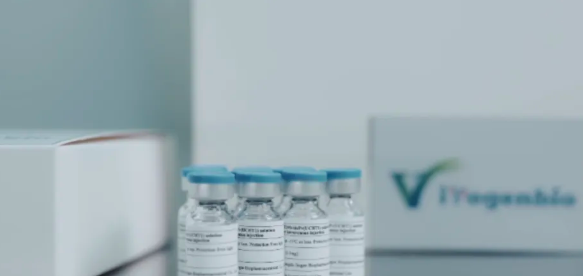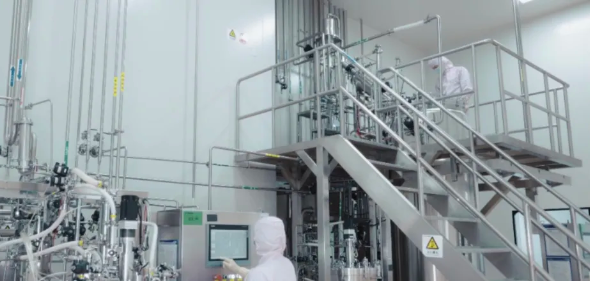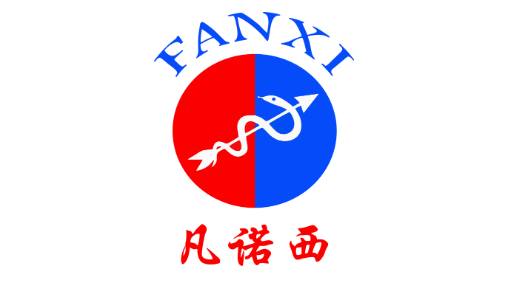In February 2023, a momentous milestone quietly emerged in the field of biomedicine. Chengdu Virogen Biotechnology Co., Ltd. (hereinafter referred to as "Virogen Biotechnology") in Tianfu Life Science Park has built subsidiary companies in the USA and Hong Kong (China), which have jointly obtained the global exclusive commercial development rights of a new original biological drug named Resimmune® (project code VG712). This drug was also approved by the National Institutes of Health (NIH) in the USA.

VG712 is a unique immunotoxin fusion protein that combines an antibody-binding domain fragment targeting the T-cell CD3 site with the modified diphtheria toxin. It can specifically bind to T cells and then be endocytosed by the cell, releasing toxin intracellularly to inhibit protein synthesis, thus specifically killing T cells.
Currently, VG712 is considered the most promising drug for rebooting the function of T lymphocytes.
To gain an in-depth understanding of this cutting-edge progress, the reporter recently visited Virogen Biotechnology and interviewed Dr. Hu Huaizhong, co-founder and senior vice president of translational medicine and clinical study of the company, to gain insights into the company's development philosophy and future plans.
Dr. Hu Huaizhong possesses extensive experience in drug discovery, early development and clinical translation. He was a postdoctoral fellow at the National Institutes of Health in the USA, received his PhD in immunology from Utrecht University in the Netherland, and obtained his MD degree from West China University of Medical Sciences. In addition, he is a certified toxicologist in the USA, having previously served as a toxicologist and Director of Preclinical Development at Covance and President of Beijing Konruns Pharmaceutical Institute.
Founded in 2022, Virogen Biotechnology is an enterprise focusing on the development of new original biological drugs in the field of immunity. The company is headquartered in Singapore, with Chengdu as its R&D base. In the interview, Hu Huaizhong mentioned that the company was headquartered in Singapore mainly to cope with the global competition.
"The development of new drugs is an international competition, and if the new drug we develop does not have uniqueness and leadership internationally, then it is not worth investing time and effort in its development," he said.
To achieve this goal, Virogen Biotechnology has set up subsidiaries in the USA, Hong Kong (China) and Chengdu. The subsidiary in the USA focuses on clinical trials in the USA; the subsidiary in Hong Kong (China) plans to establish a Clinical and Translational Medicine Research Center; the subsidiary in Chengdu is mainly responsible for process development and manufacturing of drugs. Following drug production, the drugs will be transported globally for clinical trials. At the same time, relevant clinical trials should also be carried out in China.
The company is currently developing VG712 for human immune diseases. VG712 is an innovative drug developed at NIH that clears and reboots T-cell function. T cells play a crucial role in the human immune system, and abnormalities in T cell function can lead to issues such as malignant tumors, transplant rejection, HIV and autoimmune diseases. By rebooting T cell function, it is possible to induce tumor regression, prolong life, clear latent virus reservoirs, and eliminate pathogenic cells, thereby reversing the disease progression.
Currently, the drugs available on the market are unable to truly achieve the rebooting of T cell function. Virogen Biotechnology has the global exclusive commercial development rights of VG712 in fields such as tumor, organ transplantation, lymphodepletion for CAR-T cell therapy and autoimmune diseases. The company is actively advancing research for multiple indications and striving to make groundbreaking progress in these fields.
It is reported that VG712 has completed the Phase I clinical trials for cutaneous T-cell lymphoma in the USA and obtained expedited review qualification from the FDA. The company is expected to submit a global marketing application for its product in 2028, followed by applications for multiple indications.

It is learned that Virogen Biotechnology Inc., a wholly-owned subsidiary of Virogen Biotechnology in the USA, just announced a strategic cooperation agreement with Moffitt Cancer Center in the USA in May. Aiming at cutting-edge technological innovation and unmet clinical needs, the two parties will collaborate and complement each other in clinical study and innovative therapy, jointly promote the R&D process of VG712 of Virogen Biotechnology, and jointly develop the clinical application of VG712 in lymphodepletion for chimeric antigen receptor T cell (CAR-T) and tumor infiltrating lymphocyte (TIL) therapy. Those efforts are made to address the urgent needs of tumor patients in the field of immunotherapy and provide better treatment options.
Hu Huaizhong mentioned in an interview that the company's short-term goal is to provide new treatment hope for patients with advanced cutaneous T-cell lymphoma and peripheral T-cell lymphoma, prolong their lives and improve their quality of life.
For patients with graft-versus-host disease (GVHD) after bone marrow and stem cell transplantation, the company has demonstrated significant therapeutic effects in mouse experiments, hoping to bring new hope to patients who currently have no available treatments.
In the field of kidney transplantation, the company is committed to replacing the current anti-thymocyte globulin (ATG) treatment with VG712 through the conduct of clinical trials to reduce side effects and improve clinical efficacy. Similarly, in the lymphodepletion stage of CAR-T cell therapy, the company hopes to replace the current chemotherapeutic drugs with the safer immunotoxin VG712 to expand the treatment population and reduce toxic and side effects.
What are the advantages of the innovative drug VG712?
Compared with traditional treatment methods, the innovative drugs of Virogen Biotechnology have shown significant advantages in many aspects. For example, in the realm of autoimmune diseases, abnormal T cell activity can lead to the attack of self-tissues, resulting in autoimmune disorders. The new drug of Virogen Biotechnology can regulate T cell activity and provide innovative therapeutic approaches.
In terms of organ transplant rejection, hundreds of thousands of people worldwide receive organ transplantation including kidney, heart, liver, pancreas, lung and small intestine every year. These patients commonly face acute rejection caused by T cells. Virogen Biotechnology's new drug shows great potential in alleviating rejection.
Considering the company's current research coverage across multiple fields, for cutaneous T-cell lymphoma, the company plans to conduct Phase II confirmatory clinical trials in the USA to validate the drug's efficacy and safety.
In the field of kidney transplantation, the Phase I clinical trial at the University of Colorado aims to explore the application of the drug in kidney transplantation; in the field of lymphodepletion for CAR-T cell therapy, the company is conducting relevant experiments to optimize the preparation before CAR-T cell therapy; for GvHD after bone marrow and stem cell transplantation, the company expects to conduct clinical trials at the Hospital of the University of Pennsylvania in the USA.
Looking to the future, the core indications expected to be launched on the market earliest may be lymphodepletion for CAR-T cell therapy or GvHD, with an estimated timeframe of about two to three years If successfully launched, VG712 will have a huge impact on the entire industry, especially in the field of lymphodepletion for CAR-T cell therapy, and organ and bone marrow transplantation, bringing new hope to patients who currently have no treatment options.



Park WeiChart